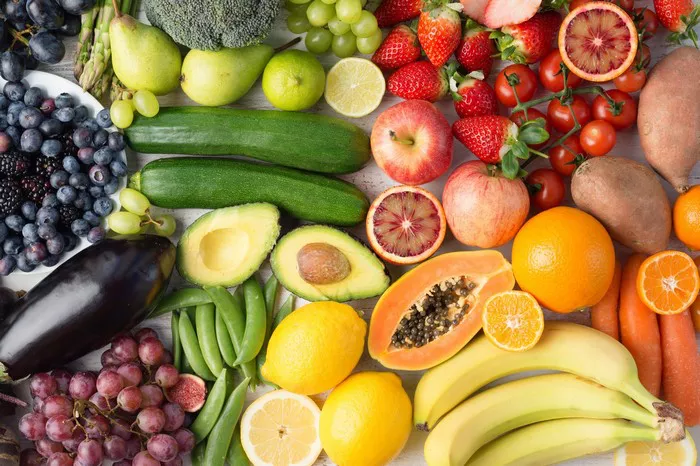In the quest for overall well-being, a pivotal aspect that often takes center stage is maintaining a healthy diet. Among the various meals, dinner holds a special significance, as it not only fuels the body for the night but also contributes to overall health. This article serves as a comprehensive guide on how to have a healthy dinner, exploring the key principles, ingredient choices, and cooking methods that can transform your evening meal into a nutritious and satisfying experience. The keyword “healthy” will be seamlessly integrated into each paragraph, emphasizing its importance in every aspect of crafting a nourishing dinner.
Understanding the Foundations of Healthy Eating
Healthy eating is not a one-size-fits-all concept; it is a personalized journey that takes into account individual preferences, dietary requirements, and health goals. At the core of a healthy dinner is a balanced combination of macronutrients (proteins, carbohydrates, and fats), micronutrients (vitamins and minerals), and fiber. This balance ensures that the body receives a diverse range of nutrients, promoting optimal functioning and overall well-being.
Choosing Healthy Proteins for Sustained Energy
Proteins are the building blocks of life, and incorporating them into your dinner is essential for a healthy and balanced meal. Opt for lean protein sources such as grilled chicken, fish, tofu, or legumes. These choices not only provide ample protein for muscle repair and maintenance but also contribute to a sense of satiety, helping control overeating. Including healthy proteins in your dinner supports various bodily functions, from immune system health to hormone regulation.
Emphasizing Whole Grains for Nutrient Density
Whole grains are a powerhouse of nutrients, offering a rich source of fiber, vitamins, and minerals. Choosing whole grains over refined options ensures that you receive the maximum nutritional benefit from your dinner. Quinoa, brown rice, bulgur, or whole wheat pasta are excellent choices that contribute to sustained energy release, helping you stay fuller for longer. The incorporation of whole grains into your dinner not only aligns with a healthy lifestyle but also supports digestive health.
Incorporating Healthy Fats for Nutrient Absorption
Contrary to the misconception that all fats are detrimental to health, incorporating healthy fats into your dinner is crucial for the absorption of fat-soluble vitamins (A, D, E, and K) and overall well-being. Avocados, nuts, seeds, and olive oil are excellent sources of healthy fats. Including a moderate amount of these fats in your dinner not only adds flavor and satiety but also contributes to heart health and cognitive function.
The Importance of Colorful Vegetables for Optimal Nutrition
Vegetables are a cornerstone of a healthy dinner, providing a myriad of vitamins, minerals, and antioxidants. Embrace a variety of colorful vegetables such as leafy greens, bell peppers, carrots, and broccoli to ensure a diverse range of nutrients. The vibrant hues in vegetables are indicative of the different phytochemicals they contain, each with unique health benefits. Including a generous portion of vegetables in your dinner not only enhances its nutritional profile but also supports immune function and overall vitality.
Mindful Cooking Methods for Healthy Preparation
The way you prepare your dinner plays a pivotal role in maintaining its health benefits. Opt for cooking methods that retain the nutritional integrity of the ingredients. Grilling, steaming, roasting, and sautéing are healthier alternatives to deep-frying. These methods preserve the natural flavors and nutrients of the food, ensuring that your dinner is not only delicious but also retains its healthful qualities.
Portion Control: A Key Element of Healthy Eating
While choosing nutritious ingredients is essential, portion control is equally crucial for maintaining a healthy dinner. Be mindful of serving sizes to prevent overeating. Adopting strategies such as using smaller plates, chewing slowly, and listening to your body’s hunger and fullness cues can help you establish a healthier relationship with food. The keyword “healthy” resonates strongly in the context of portion control, emphasizing the importance of balance and moderation in your dinner choices.
Hydration: The Unsung Hero of a Healthy Dinner
Amidst the focus on solid food components, the role of hydration in a healthy dinner often goes unnoticed. Drinking water before and during your meal aids digestion, promotes nutrient absorption, and helps prevent overeating. Opting for water over sugary beverages aligns with the overarching theme of promoting a healthy dinner. Adequate hydration supports overall health, contributes to clearer skin, and aids in weight management.
Healthy Dinner Options for Various Dietary Preferences
Recognizing that dietary preferences vary widely, there are numerous ways to customize a healthy dinner to suit different lifestyles. For those following a vegetarian or vegan diet, plant-based protein sources such as tofu, legumes, and quinoa can form the foundation of a nutritious dinner. Individuals with dietary restrictions or preferences, such as gluten-free or low-carb, can choose alternative grains or substitutes that align with their needs. The keyword “healthy” remains versatile, adapting to diverse dietary choices.
In Conclusion:
Crafting a healthy dinner is not merely a nutritional endeavor; it is a holistic approach to nourishing both the body and soul. By incorporating a balance of macronutrients, whole foods, and mindful eating practices, you create a dinner experience that goes beyond sustenance. The keyword “healthy” reverberates throughout this guide, underscoring the importance of intentional choices and habits that contribute to overall well-being. As you embark on your journey to have a healthy dinner, may each bite be a celebration of vitality, flavor, and the profound connection between the food you consume and your well-being.

























